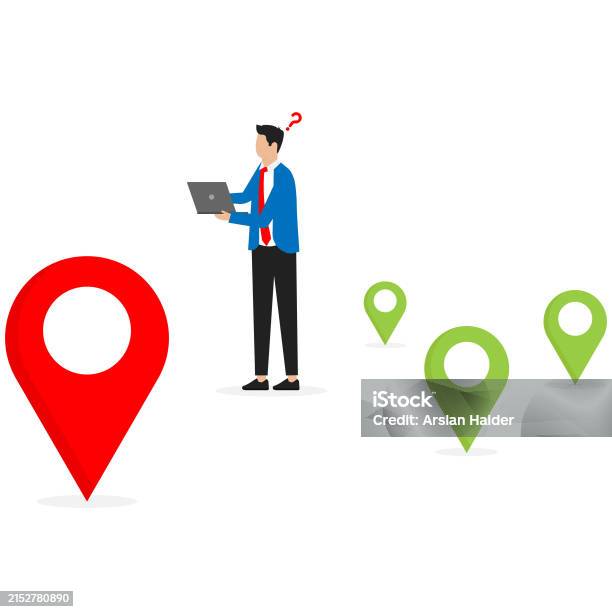Invest Smart: A Map Of The Country's Best New Business Locations

Table of Contents
Analyzing Key Factors for Optimal Business Location Selection
Choosing the right location for your new business requires careful consideration of several key factors. A well-informed decision can significantly impact your profitability and long-term success. Ignoring these factors can lead to significant challenges down the line. Let's delve into the critical aspects:
Market Demand & Demographics
Understanding the local market is paramount. Analyze these crucial demographic and market factors:
- Population size and growth rate: A growing population generally indicates a larger potential customer base. Research population projections for the areas you are considering.
- Age demographics and consumer spending habits: Tailor your business to the dominant age groups in the area and their spending patterns. Understanding their needs and preferences is key.
- Presence of target customer base: Is your ideal customer already present in the location you're considering? Conduct thorough market research to validate your target market's presence.
- Market saturation for your industry: Avoid oversaturated markets. Research the existing competition and assess the potential for your business to thrive. Identify any market gaps you can fill.
Infrastructure and Logistics
Efficient infrastructure is vital for smooth business operations. Consider the following:
- Accessibility via road, rail, and air: Easy access for employees, customers, and suppliers is crucial, especially if you rely on transportation of goods or services.
- Reliable utilities (electricity, water, internet): Consistent access to essential utilities is non-negotiable for most businesses. Investigate the reliability of utilities in your prospective location.
- Proximity to suppliers and distribution networks: Reduce costs and improve efficiency by locating near your suppliers and distribution channels. Analyze supply chain logistics thoroughly.
- Availability of skilled labor: Access to a qualified workforce is critical, particularly for specialized industries. Research the local talent pool and its availability.
Tax Incentives and Regulations
Favorable business environments can significantly impact profitability. Thoroughly research these factors:
- Local, state, and federal tax rates: Compare tax rates across different locations to identify areas with more favorable tax structures for your business type.
- Business licensing and permit requirements: Understand the regulations and procedures involved in obtaining necessary licenses and permits. This can vary significantly between locations.
- Government incentives and grants for new businesses: Many jurisdictions offer incentives to attract new businesses. Research available grants and tax breaks that can benefit your startup.
- Environmental regulations: Ensure your business operations comply with local environmental regulations to avoid potential penalties and maintain a positive impact on the community.
Spotlight on Top Locations for New Businesses in [Country Name]
This section will highlight specific examples of thriving business locations within [Country Name]. Remember that the ideal location depends heavily on your specific industry and business model. This is just a starting point for your research.
[City/Region 1]: A Hub for [Industry/Industries] (Example: Silicon Valley for Tech)
- Strong tech talent pool: Silicon Valley boasts a highly skilled and experienced workforce in the technology sector.
- Access to venture capital: Abundant venture capital funding is readily available for tech startups in this region.
- Supportive government initiatives: Various government programs and initiatives support technological innovation and entrepreneurship.
- Vibrant startup ecosystem: A thriving network of startups, incubators, and accelerators fosters collaboration and growth.
[City/Region 2]: Thriving in [Industry/Industries] (Example: Austin, TX for Tech & Music)
- Growing population and diverse economy: Austin’s growing population and diverse economy provide a large and varied customer base.
- Lower cost of living compared to other major cities: Compared to other major tech hubs, Austin offers a relatively lower cost of living.
- Strong university presence providing a skilled workforce: The presence of top universities provides a pipeline of skilled graduates.
- Pro-business environment: A business-friendly environment makes it easier to establish and operate a business.
[City/Region 3]: Opportunities in [Industry/Industries] (Example: Rural areas with agricultural opportunities)
- Land availability and lower property costs: Rural areas often offer more affordable land and property compared to urban centers.
- Growing demand for locally sourced products: A growing consumer preference for local and sustainable products creates opportunities for agricultural businesses.
- Potential for government grants and support for rural businesses: Government programs often support rural development and entrepreneurship.
- Unique lifestyle advantages: Rural areas offer a different lifestyle, which can be attractive to certain entrepreneurs.
Minimizing Risks and Maximizing Returns on Your Investment
Investing in a new business location is a significant financial commitment. It's crucial to mitigate risks and maximize your potential ROI.
Conduct Thorough Due Diligence
Before committing to a location, perform exhaustive due diligence:
- Local competition: Assess the level of competition in your chosen industry and area. Analyze their strengths and weaknesses.
- Real estate market conditions: Understand the local real estate market, including property values, rental rates, and availability.
- Potential challenges (e.g., natural disasters, economic downturns): Identify potential risks and develop contingency plans to address them.
- Consult with local experts and business advisors: Seek guidance from local experts familiar with the area's business environment.
Develop a Comprehensive Business Plan
A well-defined business plan is crucial for success:
- Outline your business strategy and goals: Clearly define your business model, target market, and objectives.
- Project financial forecasts and ROI: Develop realistic financial projections, including startup costs, operating expenses, and projected revenue.
- Identify potential risks and mitigation strategies: Anticipate potential challenges and develop strategies to mitigate them.
- Secure necessary funding: Develop a funding plan to secure the capital required to launch and operate your business.
Conclusion
Choosing the right location is a critical step towards building a successful business. By carefully analyzing key factors, researching promising locations, and conducting thorough due diligence, you can significantly increase your chances of success. Remember, investing smart means making informed decisions based on solid research and planning. Use this guide as a starting point to explore the country’s best new business locations and find the perfect fit for your entrepreneurial journey. Start your search today and find the ideal location to make your business dreams a reality! Find the best business locations for your new venture – invest smart!

Featured Posts
-
 Clarification Politique Elisabeth Borne Confirme L Etude D Une Fusion Renaissance Modem
May 10, 2025
Clarification Politique Elisabeth Borne Confirme L Etude D Une Fusion Renaissance Modem
May 10, 2025 -
 Incendie A La Mediatheque Champollion A Dijon Bilan Et Consequences
May 10, 2025
Incendie A La Mediatheque Champollion A Dijon Bilan Et Consequences
May 10, 2025 -
 Palantir Stock Investment Before May 5th What You Need To Know
May 10, 2025
Palantir Stock Investment Before May 5th What You Need To Know
May 10, 2025 -
 High Potential Replacement Show For Roman Fate Avoiding Season 2 Spoilers Streaming Now
May 10, 2025
High Potential Replacement Show For Roman Fate Avoiding Season 2 Spoilers Streaming Now
May 10, 2025 -
 Gpb Capital Founder David Gentile Convicted Details Of The Fraud And Sentence
May 10, 2025
Gpb Capital Founder David Gentile Convicted Details Of The Fraud And Sentence
May 10, 2025
